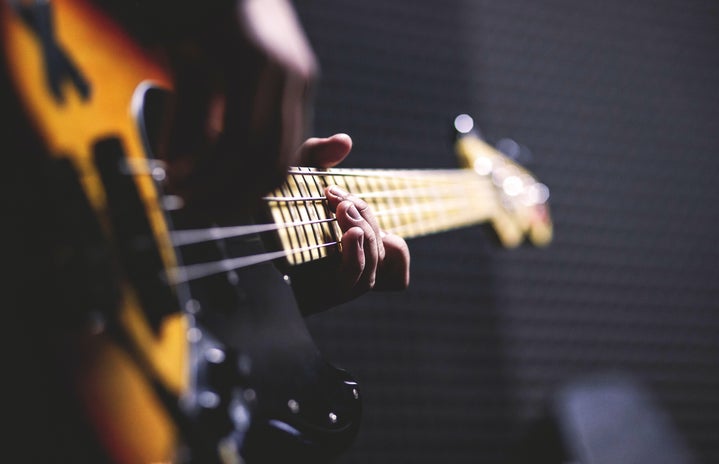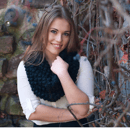“Ask me if I love her, I’m on Xans. I forget.” – Lil Peep and Lil Tracy // pain
Face tattoos. Dyed hair. Instagram. SoundCloud. Xanax.
Members of Generation Z live a double life. Their life online–their perceived, branded life, and then their reality. They hide behind screens and filters. No wonder so many cripple under the pressures of anxiety, . And how else for artists to express this loneliness than through the tormentor itself: the internet.
“As a young person trying to discover myself, I found it very relatable to these other artists who were also discovering themselves,” said Isabelle Abbott, an environmental policy and international studies double major at Loyola University Chicago.
Abbott, looking through glasses with teased-blonde hair and a black beanie, claims that the genre known as “SoundCloud rap” falls under the umbrella term “emo.” She is referring to such rappers as Lil Peep, Lil Xan, Juice WRLD, but more importantly the rappers whose names few have heard of, such as Smokepurpp and Teddy. These are young adults who are producing music from their own homes and reaching a worldwide audience.
“Finding music that touches on mental health issues and being isolated but wanting someone in your life romantically,” Abbott explained. “These are issues that are hard to speak about. Having a platform dedicated to that kind of thing actually helped me through one of the roughest times of my life.”
In a way, it is amazing to have artists who are so approachable, relatable and down to earth. On the other hand, they are normalizing their unhealthy reactions to issues like anxiety and isolation. Primarily self-medicating.
“If this is how other people are reacting to what I’m feeling,” Abbott said, “things like xans and cocaine seemed normal. And that’s something that’s also a call for help.”
But what is Xanax?
Xanax is a brand-name prescription medication which falls under the drug class, benzodiazepine. It is a depressant, and is typically prescribed to treat severe anxiety. It is also the seventh most addictive drug in the U.S., according to the Addiction Center, a referral service for those struggling with addiction.
Tara Javidan, a licensed clinical professional counselor (LCPC) and certified alcohol/drug abuse counselor (CADC), is a therapist at Clarity Clinic, a counseling service in the Chicagoland area. She has seen an increase in benzodiazepine use and abuse, and while it is a relatively cheap drug to get off the street, many doctors are perpetuating the issue by overprescribing the drug. The American Medical Association has even formed a task force to investigate doctors who are overprescribing benzodiazepines.
“There is not as much of a fear around using prescription drugs as there is around using illicit substances,” Javidan said. “There is a total misconception around the safety of pharmaceutical drugs. They can be just as dangerous as illicit substances.”
However, responsibility is a strong word to Javidan; she would not necessarily blame artists for the rising popularity of prescription drug abuse.
“I wouldn’t say rappers are necessarily responsible,” Javidan said. “Are they glorifying the use of it? Absolutely.”
The music is not enough.
They must have the look to match, and drugs are part of the equation.
“Unfortunately, the people who are primed for it– those who have underlying depression, anxiety, genetic predisposition, etc– even experimental use for something like Xanax could be very dangerous for them,” Javidan explained.he music is not enough.
Abbott also talked about the line between artistry and responsibility. She saw how her idols–SoundCloud rappers–were dealing with their own issues which were so similar to hers. She believes there is better help out there.
When it comes to this niche fanbase, it does not stop at the music. It is all about the brand. It is all about the aesthetic. Many of these artists are self-made and promote themselves on social media. Their music, their look, and their actions all become one.
“People think face [tattoos] are acceptable now because of SoundCloud artists,” Abbott said. “If you’re going to go as far as face tats, Xanax is just a stop on the way there.”
At what point does self-expression online become problematic? Underground artists may seem more approachable to the average person, but at what cost? In an attempt to find validation for their feelings, many are turning to dangerous coping mechanisms that seemingly appear normal.


